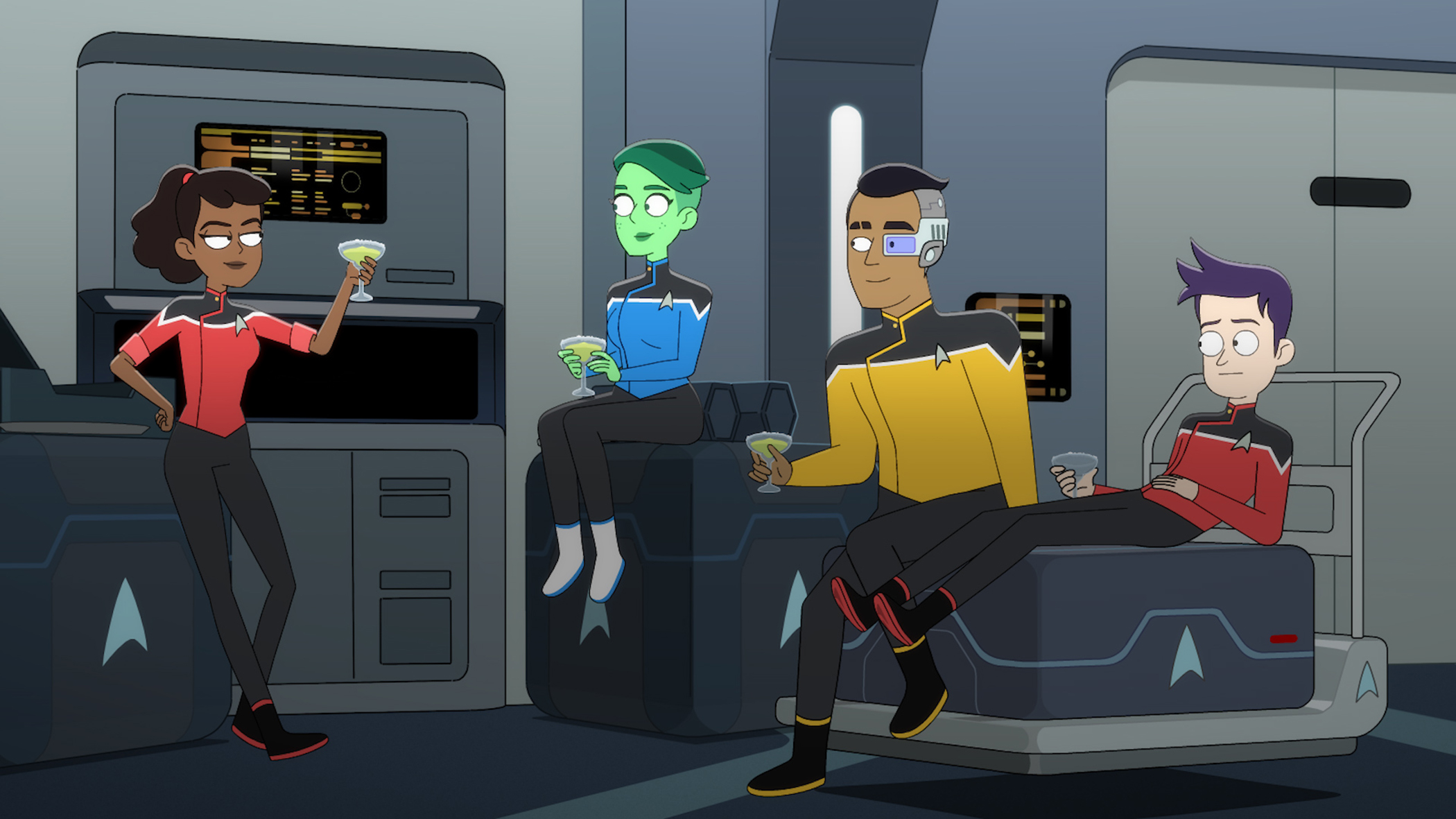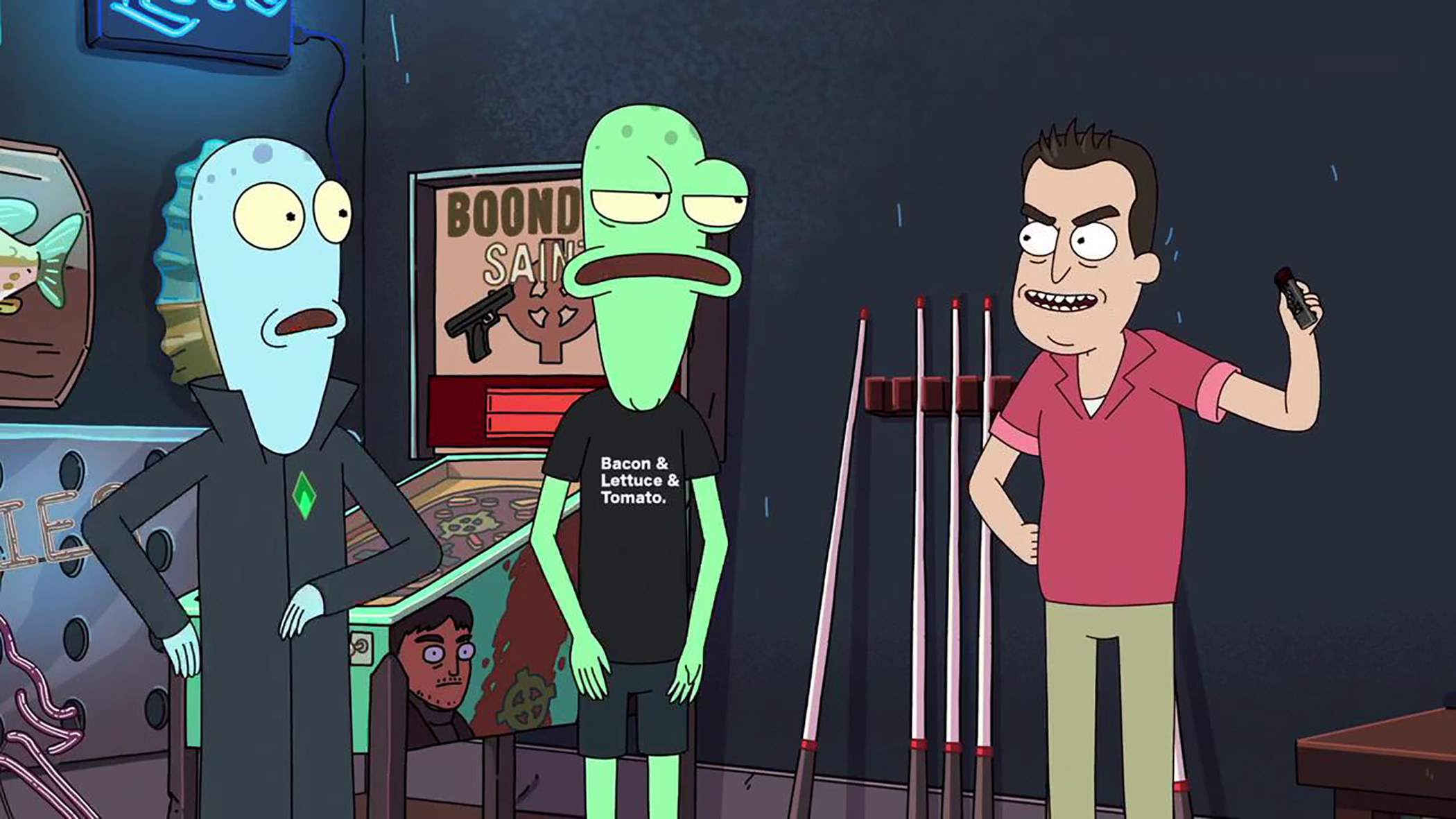
- Interviews
Mike McMahan Boldly Goes Where No Man Has Gone
It took almost half a century, millions of light-years traveled, and many intergalactic adventures on several USS Enterprise ships to boldly go where no man has gone before: to the lower decks in the animation, Star Trek: Lower Decks. Mike McMahan, the super fan of all things Star Trek has previously examined alien life forms in Rick and Morty and now adds his stamp to the “final frontier” universe, with the blessing of Rod Roddenberry, son of the franchise’s god Gene Roddenberry. So far there have been seven Star Trek series, 13 movies, and 2 animations, with two more series and one new animation still written in the stars. Mike McMahan spoke to us about the series.
There hasn’t been a Star Trek animation since the ‘70s. How did Star Trek: Lower Decks come about?

This show is a love letter to Star Trek. How so? And how did your love for Star Trek start?
Helvetica’>My love of Star Trek started when I was a little kid, watching Star Trek: The Next Generation with my mom and dad. As I grew older, I realized not only did I love sci-fi, but that watching Star Trek felt like going home to me. It felt like visiting friends and family and people that I grew up with that felt as close to me as family. As a writer, you write what you know, and weirdly I had spent so much time in Star Trek universe, that wanting to write a comedy that happened to take place in Star Trek was what got me really excited. And the love letter aspect of it is: I decided that the characters in Lower Decks should know as much as any Star Trek fan does, not because they’ve seen it on television but because they’ve read it in their history books or learned about it in class at Starfleet Academy. So if you’ve seen a ton of Star Trek, this is a celebration of everything you love because the characters love it, too. And if you’ve never seen Star Trek and you just want to have a good time, then all the Star Trek stuff is just going to read as sci-fi stuff.One of the executive producers is Rod Roddenberry, son of Star Trek creator Gene Roddenberry. Was it almost like working with royalty?
Helvetica’>I am pinching myself all the time. I remember the first time Rod and I sat down for dinner in Los Angeles, and 99% of the dinner ended up with Rod and I talking about the Federation. What he thought was important to protect his father’s creation. He made it clear to me that there were things that I couldn’t do with the Federation, because it would change what Star Trek was to him, but that there was a lot of room within that to be able to find new stories to tell. So, getting to work with Rod and getting to know him a little bit and being handed the keys to this hot rod of Star Trek and him being like, “Alright, you can take it for a spin but just don’t crash it,” I’ve taken that really seriously.Star TrekHelvetica’>When I visited the set of Star Trek: Discovery, the first thing I did is not sit in the captain’s chair but I pulled up FaceTime on my phone and called my son – I think he was five at the time – while walking through the connected hallways and said, “Hey, sorry I can’t tuck you into bed tonight. I’m on a spaceship.” It just felt magical.
But with this show, you’re boldly going where no man has gone before: below the deck. Was it your intention to add social commentary to the show?
Helvetica’>I think social commentary and sci-fi go hand in hand, and morality plays, and Star Trek is clearly like bread and butter. But nobody sits down to watch TV and goes, “Alright, give me that morality play, Baby.” They’re sitting down because they love Worf, they love the Picard, they like Beverly Crusher, they love Wesley. They want to see what’s going on with Jadzia Dax. So for me, the characters come first. And once you understand the characters, whether it’s from a comedic point of view or a dramatic one, then you can start throwing them into situations that are tinged with some of the stuff we’re dealing with in modern-day life. And the lower decks versus the bridge crew kind of mentality, a lot of it comes from when I was an assistant and how I like to treat the people who work alongside or on a lower level around me. Your support staff is as important as the people at the very top.Which character on Lower Decks represents you?
Helvetica’>The cheating answer to that is that all of the Lower Deck crew are different versions of me at different times in my career. Mariner is me when I think I know what I’m talking about. Boimler is me when I’m trying too hard and I’m shooting myself in the foot. Tendi is me being a little ray of sunshine, just happy to get to work in Hollywood and get to do this stuff. Rutherford is like the guy I wish I could be with all the technical stuff. But the true answer is that anytime one of the characters is messing up and is doing something wrong, that’s pretty much me.You worked on Rick and Morty which is about space scientists. You have another show coming up, Solar Opposites, which is about aliens. Why are you so fascinated with the universe and the stars?
Helvetica’>I’m a huge fan of Carl Sagan. My son is literally named Sagan. For me, looking at the stars is reflecting back on us. I’m not one of those guys that think we’re probably going to meet aliens in our lifetime. I think that the idea of colonizing other planets is both fascinating and enticing but also comes with a host of moral issues. I love learning about the magic of humanity through the magic of sci-fi, that the aspirations that we have looked out into the cosmos are completely reflections of people who have faith here on Earth in a terrestrial sense. I just think that humanity is intrinsically tied to looking up at the stars, it’s built into our calendars, it’s built into how we speak and it’s just something that really speaks to me. Helvetica’>

